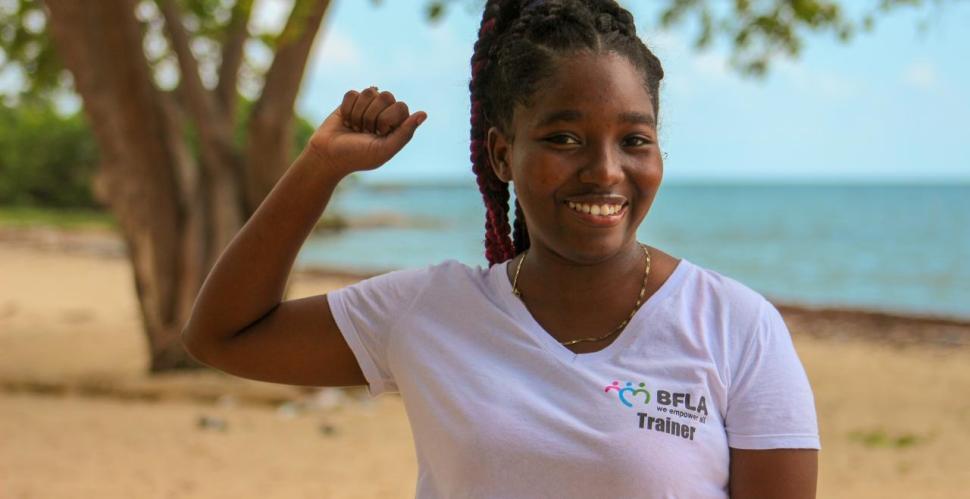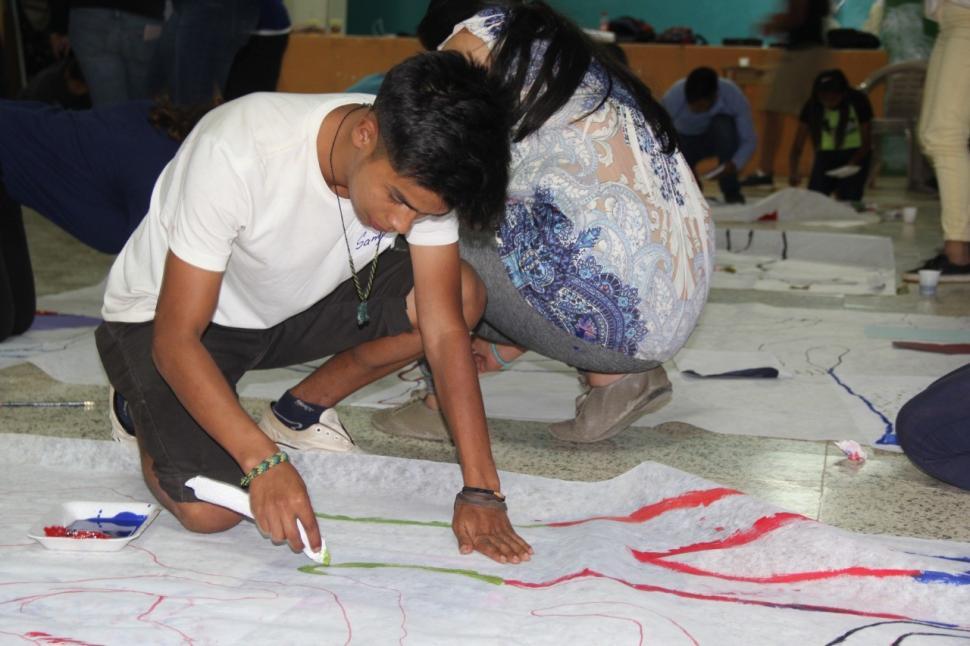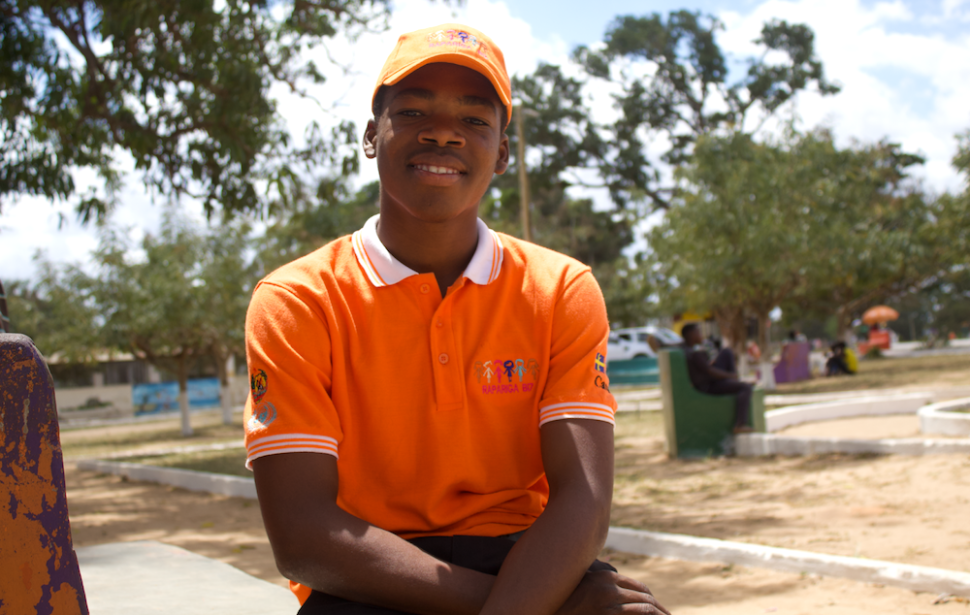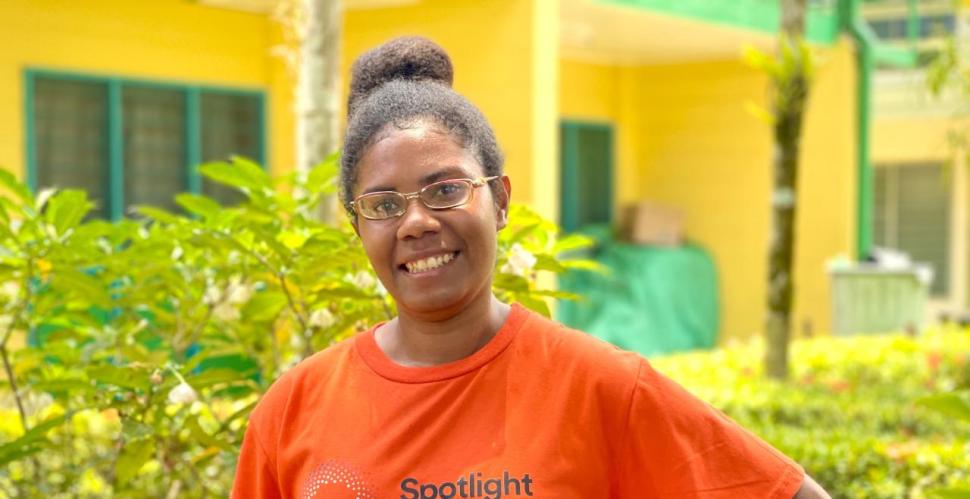Meet the youth activists making the world safer for women and girls
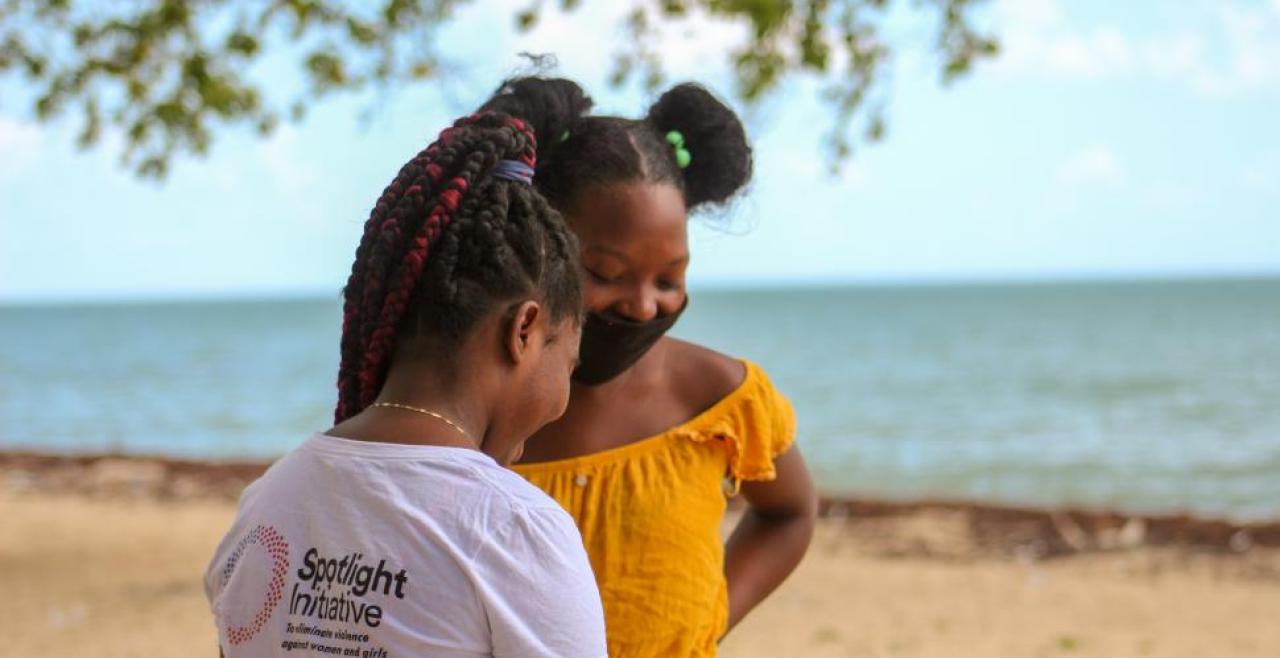
Half of the world’s population is aged 30 or younger, yet this group represents only 2.6% of parliamentarians globally. Of these young MPs, less than 1% are women.
But that hasn’t stopped young people, including women and girls, from working to create a better future.
Ahead of International Youth Day on 12 August, Spotlight Initiative celebrates the young activists building a more equitable world, where everyone can live free from violence.
Anthonisha, 20, Belize
Anthonisha Gabriel is a youth advocate from Dangriga Town, Belize. She helps other young people to make informed decisions about relationships, sexuality and how to navigate a world where gender-based violence, child marriage, adolescent pregnancies and sexually transmitted infections (STIs) pose serious risks to their health and well-being.
“Most times sexuality education in schools doesn’t tell you the common symptoms of STIs or are still teaching young people about ‘safe days’ to avoid pregnancies,” says Anthonisha. “Some young people also feel intimidated to ask their parents or are given the wrong information at home. This is why, as a young trainer, I educate young girls on how to protect themselves and encourage them to always have protection with them.”
Anthonisha is part of the Youth Advocacy Movement under the Belize Family Life Association, a Spotlight Initiative-supported civil society organization that provides comprehensive sexuality education training to community peer educators.
Samuel, 18, Honduras
Samuel is a social change activist in Intibucà, a city in the western highlands of Honduras. Passionate about human rights, he is volunteering with a local association to end violence against women in his community through art.
“We question the physical punishment and patriarchal beliefs that we all grew up with,” says Samuel. “These social norms contribute to sexual and domestic violence, and even femicide.”
He volunteers at Women in the Arts, a Spotlight Initiative-supported association that uses creativity to engage young people to challenge gender stereotypes that perpetuate violence.
“Building a gender-equal society will require all of us to rethink our beliefs and attitudes … I hope my art and actions can contribute to us realizing a society where men and women can participate equally and lead exciting and fulfilling lives."
Marto, 17, Mozambique
At just 17, Marto Abel has become a mentor to his peers. He is part of a youth group for adolescent boys in Nampula Province, Mozambique – a platform he uses to spread the message that ending gender-based violence is everyone’s responsibility. He believes that boys in particular must be equipped with the tools they need to express themselves in a non-violent and respectful way.
“I see positive transformation in the behaviour and attitude of the group I mentor. They realize equality must exist between girls and boys," he says.
“In my group, there is a particular interest in discussing issues related to sexuality, or sexual and reproductive health. I have been advising my mentees to visit the youth-friendly health service.”
Naomi Kewas, 26, Papua New Guinea
Naomi Kewas, 26, is a part of the Spotlight Initiative-supported 'Sanap Wantaim' Youth Programme which provides mentoring and conducts community outreach. She is based in Lae, Papua New Guinea's second largest city.
“I have a passion for helping others in my community, particularly young people who might not have a clear direction in life,” says Naomi.
She became interested in joining the push to end gender-based violence after a close family member was abused by her husband.
“As a volunteer, I received training from Spotlight Initiative on important topics like ending gender-based violence, behavioural change communications and harassment issues in the community. The training also covered topics like consent, gender equality, communication styles and leadership, which have been very useful for me. With this training, we can conduct outreach activities in the community and raise awareness about these important issues.”
*Ages listed at time of interview.

